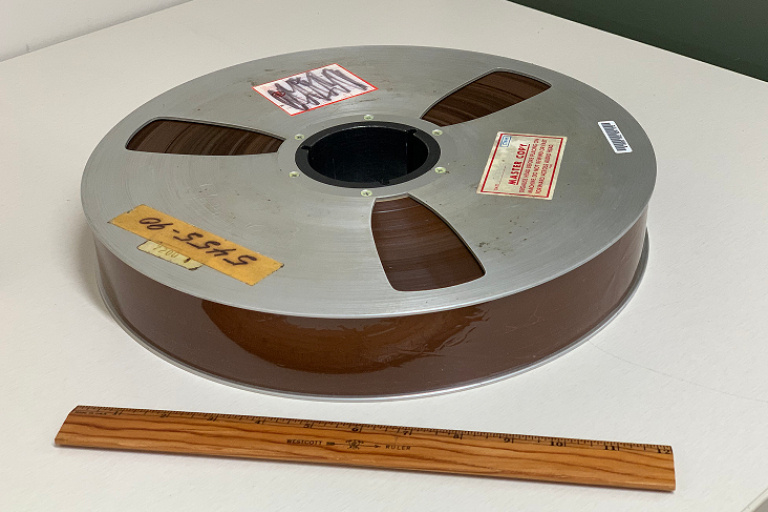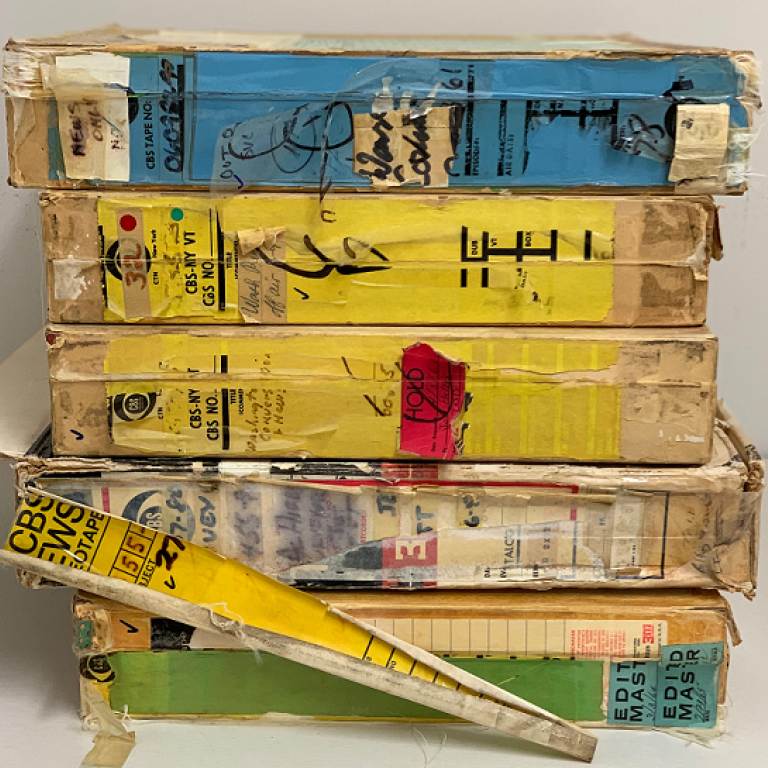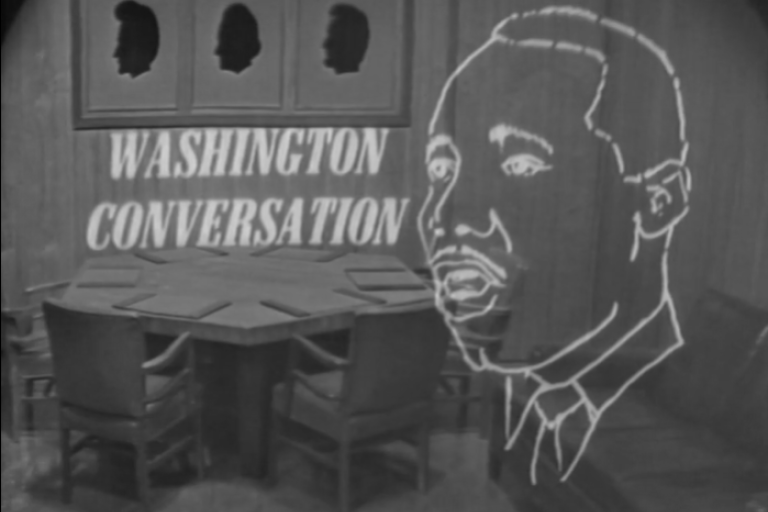
IU digitizes rare 1962 MLK interview

Archiving, Analog to Digital
Among the more than 130,000 items held by IU Libraries Moving Image Archive (IULMIA) are feature-length motion pictures, documentaries, educational and industrial films, television advertisements, and even home movies. These items range in format from 8mm, 16mm, and 35mm film to VHS tapes, DVDs, and more. The physical items are all stored at the IU Libraries Ruth Lilly Auxiliary Library Facility and are invaluable historical, cultural, political, social American and world history resources that are used by scholars, students and researchers from around the world on a frequent basis.
From 2015 to 2021, IU led an ambitious Media Digitization and Preservation Initiative (MDPI), resulting in the digitization of more than 350,000 items, including 97,395 video recordings from special collections across all IU campus locations. Two-inch quadruplex (quad) videotapes, though, were a format that presented particular challenges. If you’ve never heard of that format, you’re not alone. Two-inch quad tapes were used primarily by television stations from the mid-1950s through the early 1980s and have been obsolete for decades. Bulkier and heavier than later videotape formats, these were a cost-effective method of recording programs for broadcasts. During these decades, however, these programs were not seen as resources to be preserved for future viewers; to be fair, the mission of television stations was to produce multiple programs every day, not to preserve their own histories.
Approximately 150 different two-inch quad tapes containing broadcasts from the 1960s and 1970s from a CBS affiliate in New York were part of the former Audio-Visual Center collections, predating the IULMIA, and had been stored in a former bowling alley. While some of the tapes had identifying labels, others did not or were not accurately described; those that were labeled often listed titles of multiple shows, suggesting they had been recorded over many times—as was practiced with all forms of videotape. The only way to know for sure what was on a given tape was to watch it. That posed a problem.
A Mystery on Every Tape
As IULMIA director Rachael Stoeltje noted, “Not only was there no two-inch quad machine at IU, there was no two-inch quad machine in the state of Indiana. And these tapes aren’t like film. You can’t hold them up to the light so see what’s on them. Without the right equipment, it was difficult to dedicate resources to digitize the material without knowing what the content was.” Fortunately, at the end of the MDPI project, funding was secured to send the tapes out for digitization by a company in Tennessee specializing in this unique format.
After the two-inch quad tapes were digitized and then viewed, their contents proved to be eclectic. Many contained news and politics shows, such as an episode of CBS News featuring an obituary for Winston Churchill, or an episode of CBS Reports featuring Rachel Carson the year after publication of her seminal book Silent Spring. Other tapes contained episodes of entertainment shows such as The Beverly Hillbillies, The Merv Griffin Show, and The Lucy Show.
While the digitized quad tapes offer interesting snapshots of broadcast television from the prior century, perhaps no recording holds as much lasting cultural and historical significance as the 1962 episode of Washington Conversation featuring an interview with Dr. Martin Luther King, Jr. (IU login required to view). Speaking with CBS’s Paul Niven two years before the passage of the landmark 1964 Civil Rights Act, King reflects on the continuing challenges facing the civil rights movement at the time.
Although IULMIA cannot confirm that the two-inch quad tape in their collection contains the only existing copy of the interview, it certainly seems to be a rare item. While the program may reside in other archives, inquiries with colleagues at the Library of Congress have confirmed that they do not have a copy of this unique program.
Student Engagement and Digital Exhibition
Stoeltje made good use of IULMIA’s newest digital resources by sharing them with Information and Library Science students in a class she teaches each spring on moving image preservation. She included the digitized quad tapes among a list of collections that her students could work with, which drew the attention of graduate student Ben Parnin, who had previously earned his B.A. in history from IU and had won the prestigious IU Libraries Sam Burgess Undergraduate Library Research Award in 2020.
“I’m always drawn to things I don’t know about and that I can learn more about,” said Parnin, who is pursuing his Master of Library Science and working as an archivist assistant with IULMIA. “And at the time I knew absolutely nothing about quad tapes.”
Parnin’s work with the materials in Stoeltje’s class would eventually lead him to create a digital exhibition of the two-inch quad tapes that includes important historical and cultural context about the format in general, and the IULMIA collection specifically. Parnin loved many of the quirky things he found on the tapes. (His personal favorite is a so-serious-it-must-be-a-joke episode of the documentary series One of a Kind titled An Essay On Doors).
As much as he enjoys the lighter items among the digitized quad tapes, however, Parnin emphasizes the historical value of the news and politics shows in the collection. Pointing to the MLK interview, Parnin notes that the collection also contains an episode of Washington Conversation with Mississippi Senator John C. Stennis, an ardent segregationist who voiced his opposition to the civil rights bills then under debate in Congress.
“Watching those interviews back-to-back gives you a sense of what viewers at home would have experienced in the 1960s,” said Parnin. “You can see how these different perspectives were presented on television, and you can understand just how mainstream the segregationist viewpoint was at the time.”
Although they were treated as ephemeral objects by the television producers who used them, the two-inch quad tapes in the IULMIA collection have found a new life as important, if sometimes idiosyncratic, historical records. They also serve as a valuable reminder of the unlimited potential of preservation work done by archivists at IU and around the world.
Location:



